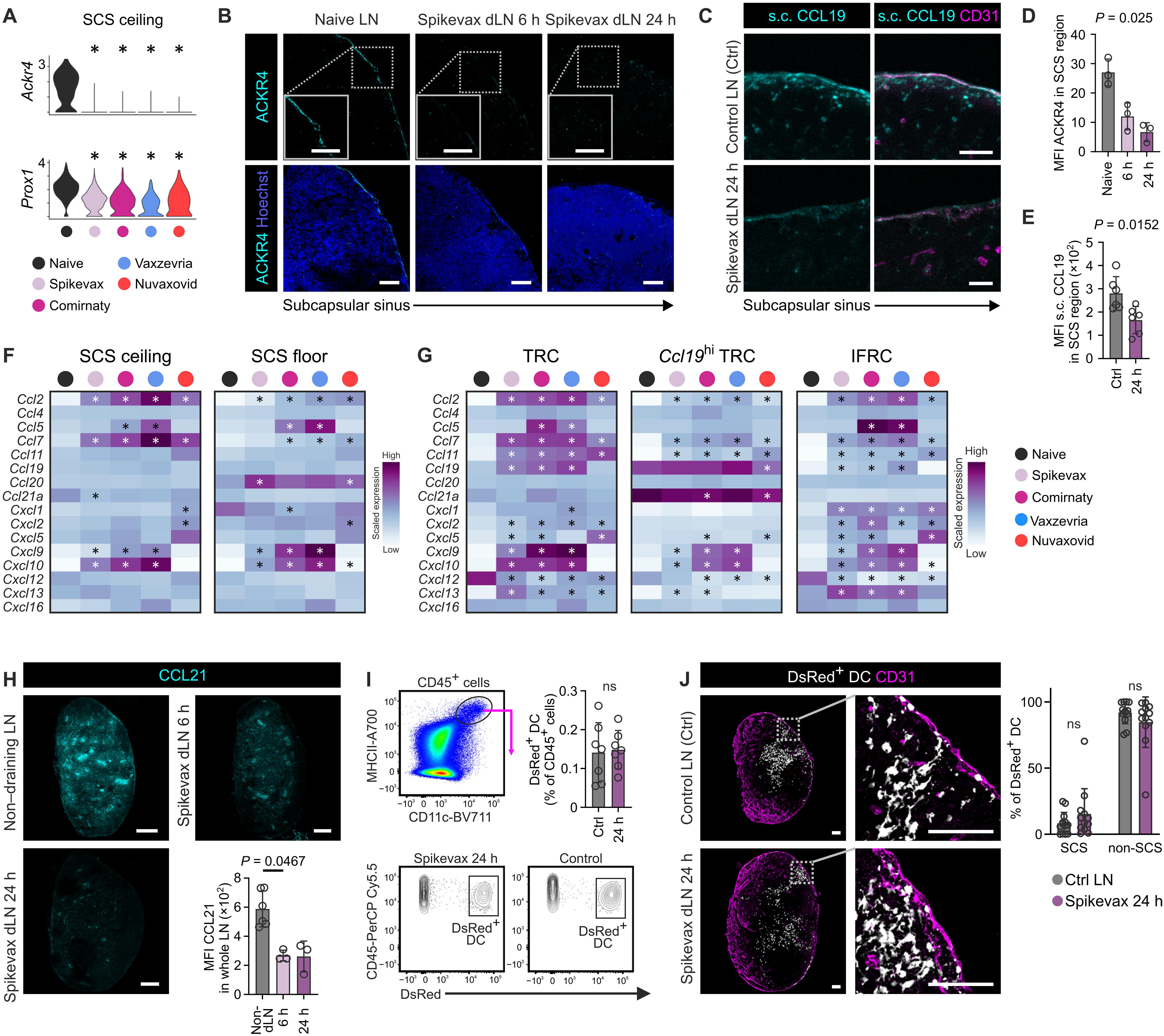COVID-19 vaccine type controls stromal reprogramming in draining lymph nodes
IF 16.3
1区 医学
Q1 IMMUNOLOGY
引用次数: 0
Abstract
Lymph node (LN) stromal cells are critical regulators of immune reactions, yet their responses to different SARS-CoV-2 vaccines remain unexplored. Here, we immunized mice with clinically approved gene- and protein-based COVID-19 vaccines targeting viral spike (S) protein and analyzed the draining LN stroma using multimodal bioimaging, single-cell transcriptomics, and functional studies. We found that messenger RNA and adenovirus vector vaccines transfected lymphatic endothelial cell and fibroblastic reticular cell subsets in vivo and led to early local S protein production in the draining LN in a vaccine-specific manner. The vaccines induced rapid transcriptomic reprogramming of the LN stromal cells, which functionally altered scavenging and parenchymal transfer of lymph-borne antigens, formation of chemokine gradients, and migration of eosinophils within LNs. Thus, distinct vaccine formulations targeting S protein differentially prime the draining LN stromal cells before the arrival of migratory dendritic cells bearing immunogens.

COVID-19疫苗类型控制引流淋巴结基质重编程
淋巴结(LN)基质细胞是免疫反应的关键调节因子,但它们对不同SARS-CoV-2疫苗的反应仍未被探索。在这里,我们使用临床批准的针对病毒刺突(S)蛋白的基于基因和蛋白质的COVID-19疫苗免疫小鼠,并使用多模式生物成像、单细胞转录组学和功能研究分析引流LN基质。我们发现信使RNA和腺病毒载体疫苗在体内转染淋巴内皮细胞和成纤维网状细胞亚群,并以疫苗特异性的方式在淋巴细胞引流中导致早期局部S蛋白的产生。疫苗诱导LN间质细胞的快速转录组重编程,这在功能上改变了LN内淋巴源抗原的清除和实质转移、趋化因子梯度的形成和嗜酸性粒细胞的迁移。因此,在携带免疫原的迁移树突状细胞到来之前,针对S蛋白的不同疫苗配方会以不同的方式激活LN基质细胞。
本文章由计算机程序翻译,如有差异,请以英文原文为准。
求助全文
约1分钟内获得全文
求助全文
来源期刊

Science Immunology
Immunology and Microbiology-Immunology
CiteScore
32.90
自引率
2.00%
发文量
183
期刊介绍:
Science Immunology is a peer-reviewed journal that publishes original research articles in the field of immunology. The journal encourages the submission of research findings from all areas of immunology, including studies on innate and adaptive immunity, immune cell development and differentiation, immunogenomics, systems immunology, structural immunology, antigen presentation, immunometabolism, and mucosal immunology. Additionally, the journal covers research on immune contributions to health and disease, such as host defense, inflammation, cancer immunology, autoimmunity, allergy, transplantation, and immunodeficiency. Science Immunology maintains the same high-quality standard as other journals in the Science family and aims to facilitate understanding of the immune system by showcasing innovative advances in immunology research from all organisms and model systems, including humans.
 求助内容:
求助内容: 应助结果提醒方式:
应助结果提醒方式:


